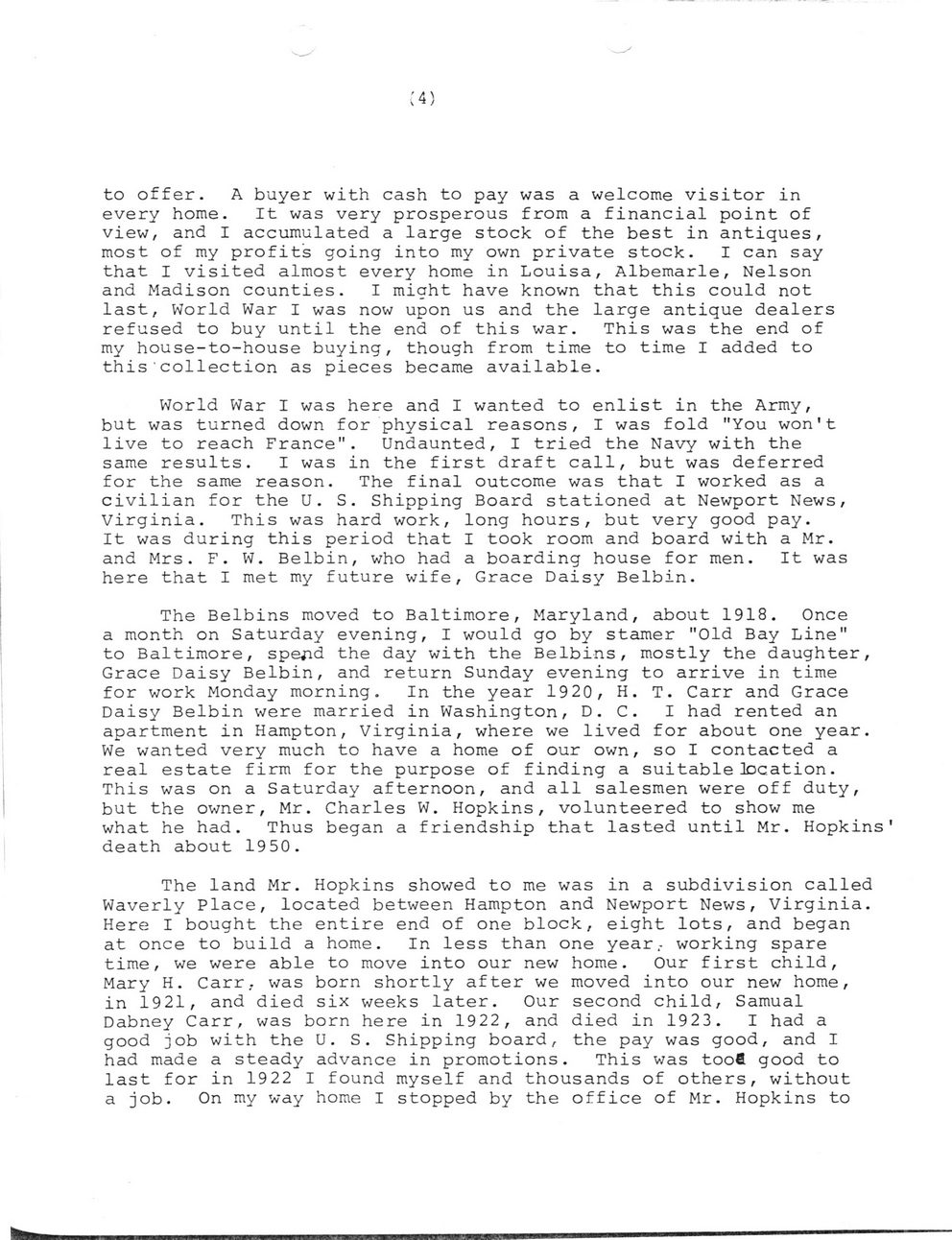This text was obtained via automated optical character recognition.
It has not been edited and may therefore contain several errors.
to offer. A buyer with cash to pay was a welcome visitor in every home. It was very prosperous from a financial point of view, and I accumulated a large stock of the best in antiques, most of my profits going into my own private stock. I can say that I visited almost every home in Louisa, Albemarle, Nelson and Madison counties. I might have known that this could not last, World War I was now upon us and the large antique dealers refused to buy until the end of this war. This was the end of my house-to-house buying, though from time to time I added to this'collection as pieces became available. World War I was here and I wanted to enlist in the Army, but was turned down for physical reasons, I was fold "You won't live to reach France". Undaunted, I tried the Navy with the same results. I was in the first draft call, but was deferred for the same reason. The final outcome was that I worked as a civilian for the U. S. Shipping Board stationed at Newport News, Virginia. This was hard work, long hours, but very good pay. It was during this period that I took room and board with a Mr. and Mrs. F. W. Belbin, who had a boarding house for men. It was here that I met my future wife, Grace Daisy Belbin. The Belbins moved to Baltimore, Maryland, about 1918. Once a month on Saturday evening, I would go by stamer "Old Bay Line" to Baltimore, spejid the day with the Belbins, mostly the daughter, Grace Daisy Belbin, and return Sunday evening to arrive in time for work Monday morning. In the year 1920, H. T. Carr and Grace Daisy Belbin were married in Washington, D. C. I had rented an apartment in Hampton, Virginia, where we lived for about one year. We wanted very much to have a home of our own, so I contacted a real estate firm for the purpose of finding a suitable location. This was on a Saturday afternoon, and all salesmen were off duty, but the owner, Mr. Charles W. Hopkins, volunteered to show me what he had. Thus began a friendship that lasted until Mr. Hopkins' death about 1950. The land Mr. Hopkins showed to me was in a subdivision called Waverly Place, located between Hampton and Newport News, Virginia. Here I bought the entire end of one block, eight lots, and began at once to build a home. In less than one year,- working spare time, we were able to move into our new home. Our first child, Mary H. Carr, was born shortly after we moved into our new home, in 1921, and died six weeks later. Our second child, Samual Dabney Carr, was born here in 1922, and died in 1923. I had a good job with the U. S. Shipping board, the pay was good, and I had made a steady advance in promotions. This was too? good to last for in 1922 I found myself and thousands of others, without a job. On my way home I stopped by the office of Mr. Hopkins to

Carr, Hugh Turner My-First-80-Years-Aboard-The-Planet-Earth-009